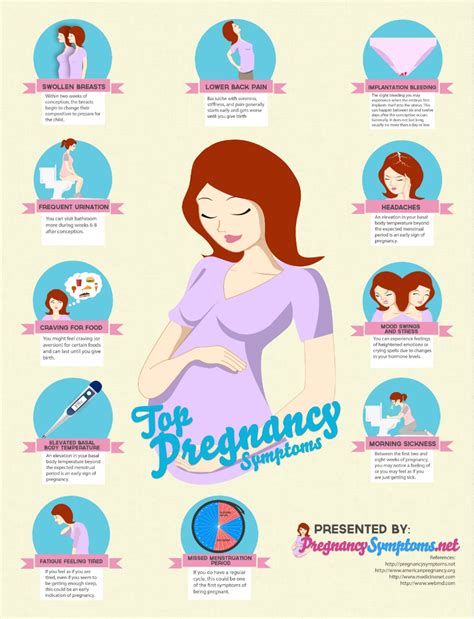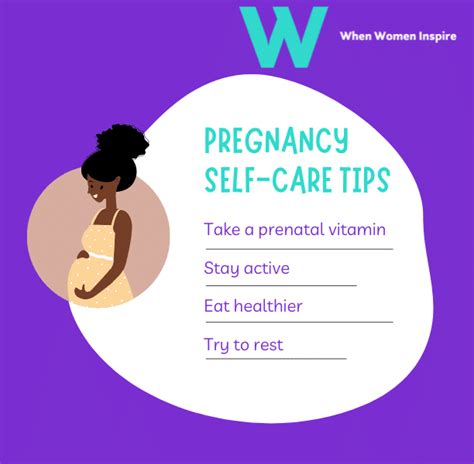Intro
Find relief from exhaustion with expert tips on managing fatigue during pregnancy, including natural energy boosters, prenatal care, and self-care routines for a healthier, happier you.
As soon as a woman discovers she is pregnant, her body starts undergoing a series of changes that can be overwhelming. The excitement and joy of expecting a new baby can quickly be overshadowed by fatigue, mood swings, and physical discomfort. For many pregnant women, the first trimester is the most challenging, with symptoms like morning sickness, dizziness, and breast tenderness making everyday tasks feel like a struggle. However, it's essential to remember that these symptoms are a normal part of pregnancy and that there are ways to manage them. By prioritizing self-care, seeking support from loved ones, and making informed decisions about their health, pregnant women can find relief and enjoy this special time.
Pregnancy is a unique experience for every woman, and while some may sail through the nine months with ease, others may face significant challenges. The physical and emotional demands of pregnancy can be exhausting, leaving many women feeling drained and irritable. Moreover, the pressure to maintain a healthy lifestyle, manage relationships, and prepare for motherhood can add to the stress and anxiety. It's crucial for pregnant women to acknowledge that their well-being is just as important as the health of their unborn baby. By taking proactive steps to manage their symptoms, prioritize their mental health, and seek support when needed, pregnant women can reduce their stress levels and cultivate a more positive pregnancy experience.
The journey to motherhood is a remarkable one, filled with excitement, anticipation, and transformation. While it's natural to focus on the baby's development and preparation for their arrival, it's equally important to prioritize the mother's health and well-being. A happy, healthy mother is better equipped to care for her newborn and navigate the challenges of parenthood. By recognizing the importance of self-care, building a support network, and staying informed about pregnancy and parenting, women can empower themselves to have a more positive, fulfilling experience. Whether it's through exercise, meditation, or simply taking a relaxing bath, finding ways to manage stress and promote relaxation can make a significant difference in a pregnant woman's quality of life.
Pregnancy Symptoms and Relief

Pregnancy symptoms can vary from woman to woman, but common complaints include morning sickness, fatigue, back pain, and mood swings. While these symptoms can be uncomfortable and frustrating, there are many ways to find relief. For example, morning sickness can be managed with dietary changes, such as eating smaller, more frequent meals, and avoiding triggers like strong smells or spicy foods. Fatigue can be alleviated with regular exercise, like prenatal yoga or swimming, and prioritizing rest and relaxation. Back pain can be eased with proper posture, stretching, and using supportive pillows or maternity belts. By understanding their symptoms and exploring different relief options, pregnant women can reduce their discomfort and improve their overall well-being.
Managing Morning Sickness
Morning sickness is one of the most common pregnancy symptoms, affecting up to 80% of pregnant women. While it's often referred to as "morning" sickness, the truth is that it can strike at any time of day. The exact cause of morning sickness is still unknown, but it's believed to be related to hormonal changes, particularly the surge in human chorionic gonadotropin (hCG). Managing morning sickness requires a combination of lifestyle changes, dietary adjustments, and natural remedies. Some effective strategies include: * Eating smaller, more frequent meals to reduce nausea and prevent overwhelming the stomach * Avoiding strong smells, spicy foods, and other triggers that can exacerbate symptoms * Staying hydrated with plenty of water, clear broths, and electrolyte-rich beverages * Practicing relaxation techniques, such as deep breathing, meditation, or yoga, to reduce stress and anxiety * Getting plenty of rest and taking naps when needed to help regulate hormones and alleviate fatigueSelf-Care During Pregnancy

Self-care is essential for pregnant women, as it helps them manage stress, promote relaxation, and maintain their physical and emotional well-being. Self-care activities can be simple, such as taking a warm bath, reading a book, or listening to soothing music. They can also be more structured, like attending prenatal yoga classes, practicing meditation, or joining a pregnancy support group. By prioritizing self-care, pregnant women can:
- Reduce their stress and anxiety levels, which can contribute to a healthier pregnancy and birth experience
- Improve their sleep quality, which is essential for fetal development and maternal health
- Boost their mood and energy levels, making it easier to manage daily tasks and responsibilities
- Enhance their physical comfort, reducing symptoms like back pain, sciatica, and swelling
- Cultivate a more positive body image, which can help them feel more confident and prepared for motherhood
Prenatal Exercise and Physical Activity
Regular exercise is a crucial aspect of self-care during pregnancy, offering numerous benefits for both the mother and the baby. Prenatal exercise can help: * Reduce the risk of gestational diabetes, hypertension, and other pregnancy-related complications * Improve mood and reduce symptoms of anxiety and depression * Enhance sleep quality and duration * Increase energy levels and reduce fatigue * Support fetal development and prepare the body for labor and childbirth Some excellent prenatal exercises include: * Brisk walking * Swimming * Prenatal yoga * Pilates * Dancing * Low-impact aerobicsPregnancy Support and Resources

Having a strong support network is vital for pregnant women, as it provides them with emotional comfort, practical help, and valuable guidance. Support can come from various sources, including:
- Partners and family members
- Friends and social networks
- Healthcare providers and medical professionals
- Pregnancy support groups and online communities
- Doulas and birth coaches
- Prenatal classes and education programs By building a support network, pregnant women can:
- Feel more connected and less isolated, reducing the risk of depression and anxiety
- Access valuable information and resources, helping them make informed decisions about their pregnancy and birth
- Develop a stronger sense of community and belonging, which can enhance their overall well-being and life satisfaction
- Receive practical help and assistance, such as meal preparation, household chores, and childcare
Pregnancy Education and Preparation
Pregnancy education and preparation are essential for expectant mothers, as they provide them with the knowledge, skills, and confidence to navigate the challenges of pregnancy, childbirth, and parenthood. Some excellent resources include: * Prenatal classes and workshops * Online education programs and webinars * Pregnancy books and guides * Mobile apps and digital tools * Support groups and online forums By investing in pregnancy education and preparation, women can: * Feel more empowered and in control of their pregnancy and birth experience * Develop a deeper understanding of their body and the changes they're experiencing * Build a stronger relationship with their healthcare provider and support team * Reduce their anxiety and fear, replacing them with confidence and excitementPregnancy and Mental Health

Pregnancy can be a challenging and emotional time, with many women experiencing mood swings, anxiety, and depression. It's essential to prioritize mental health during pregnancy, as it can have a significant impact on both the mother and the baby. Some common mental health concerns during pregnancy include:
- Anxiety and worry about the baby's health, the birth experience, and parenthood
- Depression and mood swings, which can be triggered by hormonal changes and sleep deprivation
- Trauma and stress, which can be related to past experiences, relationship issues, or pregnancy complications
- Body image concerns and self-esteem issues, which can be exacerbated by physical changes and societal pressure
Mental Health Support and Resources
Fortunately, there are many resources available to support pregnant women's mental health, including: * Therapy and counseling services * Support groups and online communities * Hotlines and helplines * Mobile apps and digital tools * Healthcare providers and medical professionals By seeking mental health support and resources, pregnant women can: * Develop coping strategies and stress management techniques * Build a stronger support network and sense of community * Enhance their self-esteem and body image * Reduce their symptoms of anxiety and depression * Improve their overall mental health and well-beingConclusion and Next Steps

Pregnancy is a unique and transformative experience, filled with challenges and opportunities for growth. By prioritizing self-care, seeking support, and staying informed, pregnant women can navigate the ups and downs of pregnancy with confidence and resilience. Whether it's managing morning sickness, practicing prenatal exercise, or cultivating a positive body image, there are many ways to promote physical and emotional well-being during pregnancy. As expectant mothers prepare for the arrival of their baby, it's essential to remember that their health and happiness are just as important as their baby's. By taking care of themselves and seeking support when needed, pregnant women can set themselves up for a positive, empowering experience that will last a lifetime.
We invite you to share your thoughts, questions, and experiences in the comments below. How do you prioritize self-care during pregnancy? What resources have you found most helpful in managing symptoms and promoting well-being? Let's start a conversation and support one another on this incredible journey to motherhood.
What are the most common pregnancy symptoms, and how can I manage them?
+The most common pregnancy symptoms include morning sickness, fatigue, back pain, and mood swings. To manage these symptoms, try eating smaller, more frequent meals, staying hydrated, practicing relaxation techniques, and getting plenty of rest. You can also explore natural remedies like ginger, peppermint, and acupuncture.
How can I prioritize self-care during pregnancy, and what activities are safe and beneficial?
+Prioritize self-care by listening to your body, taking breaks when needed, and engaging in activities that bring you joy and relaxation. Safe and beneficial activities during pregnancy include prenatal yoga, swimming, walking, and meditation. Always consult with your healthcare provider before starting any new exercise or activity.
What resources are available to support pregnant women's mental health, and how can I access them?
+Resources available to support pregnant women's mental health include therapy, support groups, hotlines, and online communities. You can access these resources by talking to your healthcare provider, searching online, or reaching out to local organizations that specialize in maternal mental health.
